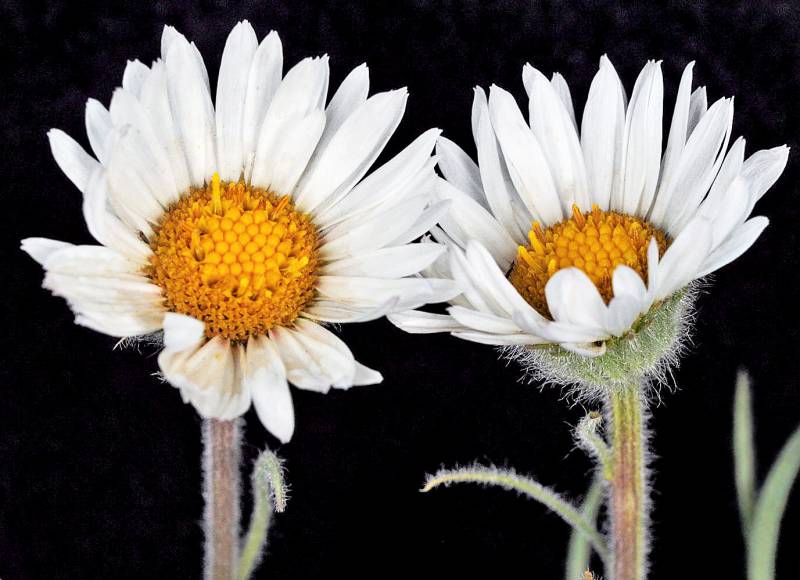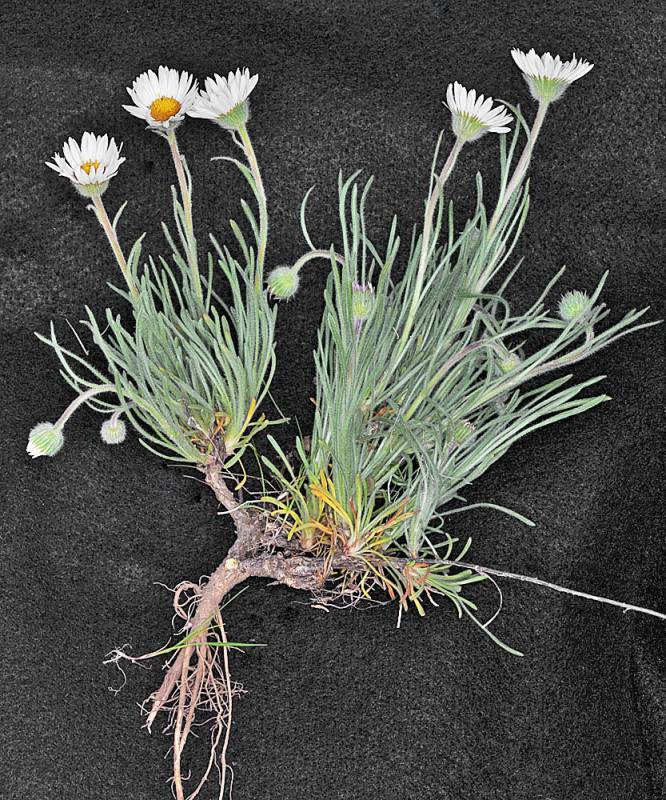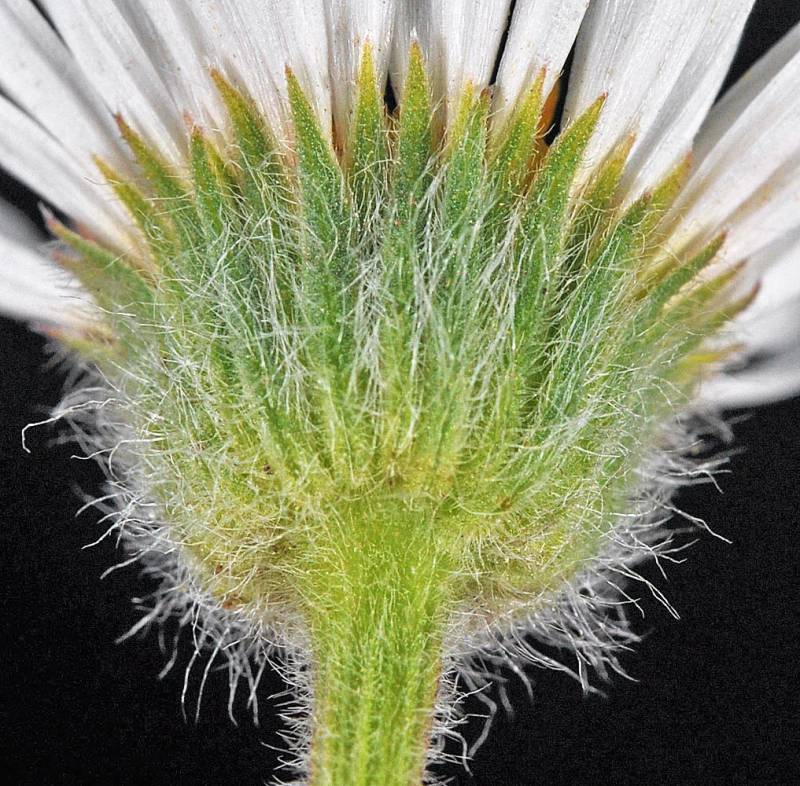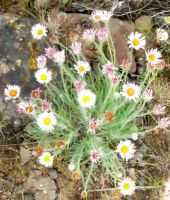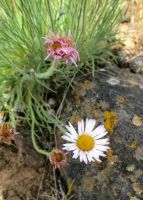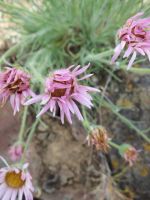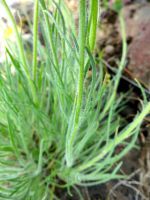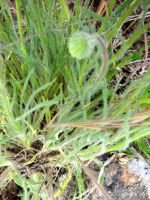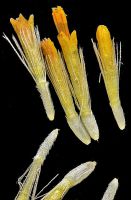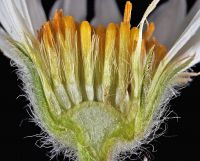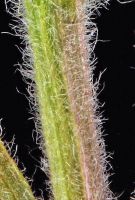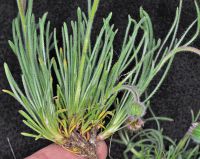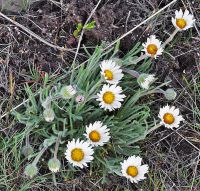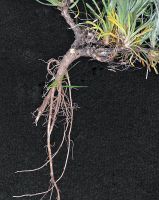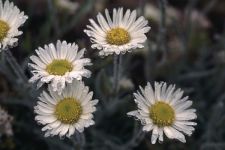Distribution: Occurring east of the Cascades crest in the Snake River area in southeastern Washington; southeastern Washington to southeastern Oregon, east to southwestern Idaho.
Habitat: Dry, rocky hillsides at low to middle elevations.
Flowers: May-July
Origin: Native
Growth Duration: Perennial
Conservation Status: Sensitive in Washington (WANHP)
Pollination: Bees, butterflies, flies, apomixis?
Perennial from a tap-root, 3-12 cm. high, the stem covered with very unequal, spreading hairs.
Leaves nearly all in a basal cluster, finely stiff-hairy, linear or linear-oblanceolate, up to 4 cm. long and 2 mm. wide.
Heads solitary; involucres 5-7 mm. high, with spreading short hairs and often glandular as well; rays 30-60, white, pistillate, becoming pinkish, 5-10 mm. long and 1.5-2.3 mm. wide; disk flowers yellow; pappus of 15-25 capillary bristles.
Publication: Brittonia. 6: 194. 1947.
PNW Herbaria: Specimen records of Erigeron disparipilus in the Consortium of Pacific Northwest Herbaria database
WA Flora Checklist: Erigeron disparipilus checklist entry
OregonFlora: Erigeron disparipilus information
E-Flora BC: Erigeron disparipilus atlas page
CalPhotos: Erigeron disparipilus photos

